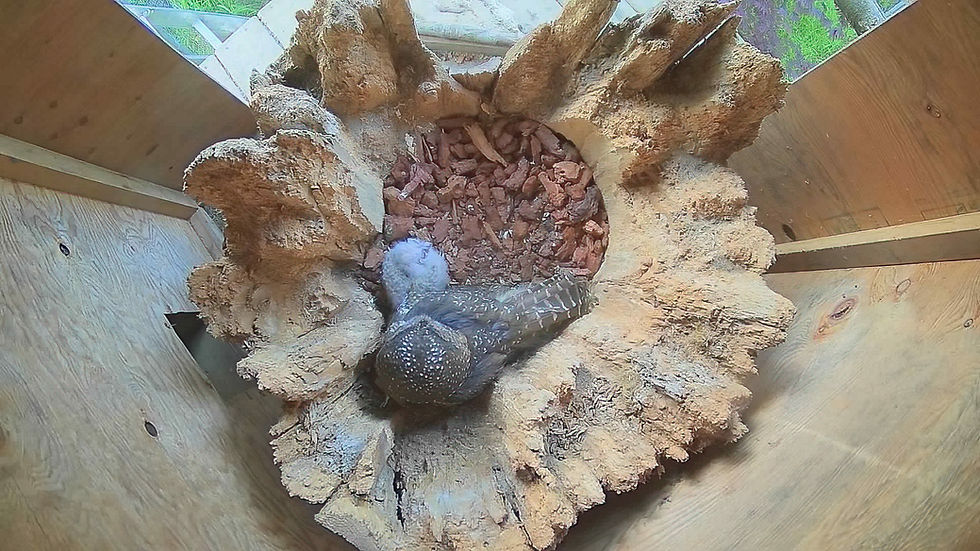Avian Influenza Outbreak
- Oct 1, 2022
- 2 min read
Updated: Oct 13, 2023
While the Covid-19 pandemic seems to be winding down, at the Northern Spotted Owl Breeding Program (NSOBP) we are still on edge about a different virus; the H5N1 Highly Pathogenic Avian Influenza (HPAI). More commonly known as the bird flu, HPAI is a contagious viral infection that can affect all birds.

Avian influenza most commonly occurs in an agricultural setting, where birds have high contact with each other, but this year it was found in wild birds in BC as well. Wild birds contract the virus from food sources and unfortunately avian influenza has an extremely high fatality rate for raptors and they often do not show signs of illness until right before death. Given the conservation status of the northern spotted owl and having the majority of the BC population housed on a single property, an outbreak of this virus could be devastating.
Given these concerns, NSOBP has taken action to protect the owls in our care:
Placing water sources under cover to reduce exposure to fecal matter from wild birds.
Disinfecting shoes when coming on-site, and upon entering or exiting an aviary
Wearing PPE while working with young chicks
Keeping any extra dishes or materials properly stored
Monitoring the BC government tracking of the virus to evaluate our risk of exposure
Washing our hands/using hand sanitizer often and keeping our work clothes clean
Regularly disinfecting materials used with the adult owls, chicks and our rodent colony
Continuous monitoring of the health and safety of our owls
As of August 2022, the avian influenza order affecting the NSOBP was revoked, meaning that the risk of transmission in our area was very low. Despite this, we continue to be diligent regarding biosecurity throughout the year to ensure the owls are as safe and healthy as possible.
Wondering how you can help?
Here are some recommendations:
Personal bird feeders and bird baths should be taken down entirely or cleaned on a regular schedule with a weak solution of bleach. Ensure they are rinsed and dried before re-use.
Domestic/pet birds should have minimized contact with wild birds and water sources should be placed inside or under cover.
This article was originally published in our 2022 Newsletter.








